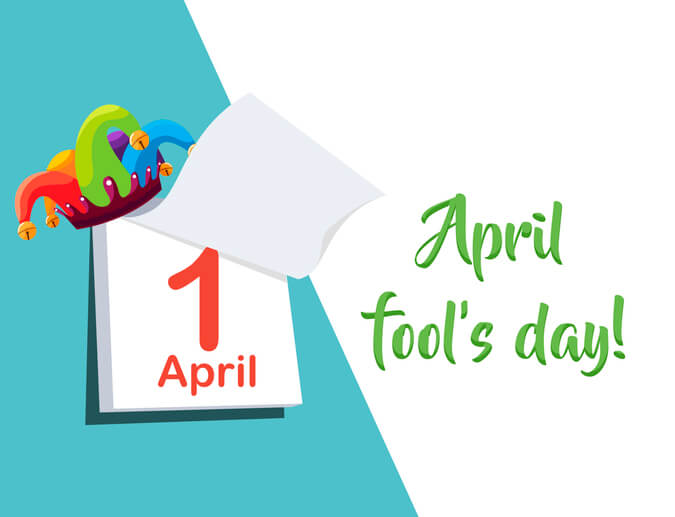April Fool’s Day

April Fool’s Day has always been a bit of a controversial day. Some people love it. They find joy in pulling pranks on their family and friends, while others think that the day is foolish (see what I did there), annoying, and unnecessary. Sometimes pranks can go too far and be harmful to others. To be honest, it was never a day that I “celebrated” per se, but one that I always tried to keep on my radar so as not to be caught off guard by those who did find it necessary to celebrate. That being said, I thought it would be interesting to find out more about the origins of this day, and a couple of things inspired me to write this blog. 1. It is indeed almost April 1st, and 2. I have fond memories of going to Grandpa Shorter’s Gifts many years ago as a child and seeing all of the gag items that they sold. I remember purchasing classic prankster items like a fly in an ice cube, invisible ink, and whoopee cushions.
It is widely believed that April Fool’s Day started in the 1500s in France. At that time the calendar that they used was referred to as the Julian calendar, named after Julius Caesar. In this calendar, the new year began on April 1. However, in 1582, France replaced this calendar with the Gregorian calendar which was introduced to them by Pope Gregory XIII and is still used in most parts of the world today. In this calendar, the new year was moved to January 1. Those people who were unaware of the change of this holiday in the new calendar incorrectly continued to celebrate the new year on April 1, and they were mocked by the more aware citizens who called them April fools. How this turned into a day of trickery, pranks, and hoaxes is a little unclear, but the recorded cases of the tomfoolery can be found as far back as the 1600s.
Throughout history, there have been many memorable April Fool’s Day pranks. In gathering information to write this blog, these were some of the most interesting ones that I discovered:
- In 1957 the BBC broadcasted a segment on a bumper crop of spaghetti in the Swiss region of Ticino. To show that this was a real thing, they showed actual footage of people picking spaghetti off of trees. Many Brits believed the story to be true and called the BBC to find out how they too could grow their own spaghetti.
- In 1976, well known astronomer Patrick Moore told radio listeners that the morning of April 1, at exactly 9:47 a.m., due to a rare planetary alignment of Pluto and Jupiter, the Earth would undergo a shift in its gravitational forces, and people would be able to briefly float in the air. He referred to this phenomenon as the Jovian-Plutonian effect. Live on air, Moore instructed listeners to jump at that precise moment. Within minutes, calls were coming into the radio station reporting the impact of the Jovian-Plutonian effect.
- In 1996, Taco Bell took out a full-page advertisement in several major newspapers throughout the United States announcing that they had purchased the Liberty Bell to reduce the country’s debt and renamed it the Taco Liberty Bell.
- In 2008, those zany newscasters at the BBC once again devised the perfect April Fool’s prank. They reported that there was a new colony of flying penguins that had been discovered. The story was accompanied by an elaborate video that showed “actual footage” of the penguins flying from Antarctica to the Amazon rainforest.
April Fool’s jokes can be fun if they are done in the right spirit and are not meant to cause harm. If you are planning on celebrating April Fool’s Day by pulling off a prank or two this year, remember to keep it classy, respectful, and safe. Faking deaths, pregnancies, or armed robberies are never funny jokes.
Oh, and Grandpa Shorter’s Gifts still carries a selection of gag gifts because whoopie cushions and flies in fake ice cubes will never not be funny.






